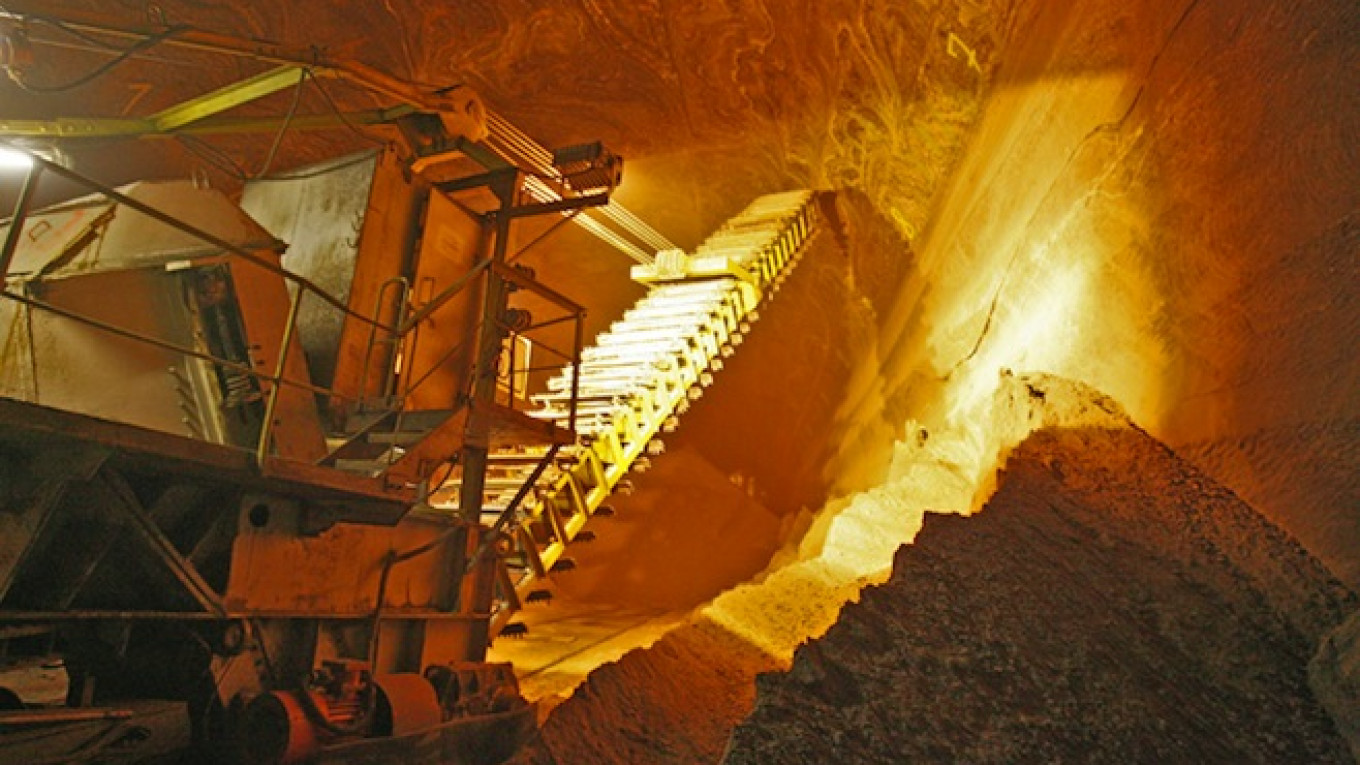Russia's Uralkali, the world's largest potash producer, approved a $1.3 billion share buyback on Tuesday which may lead to its delisting from the London Stock Exchange due to a decline in liquidity.
Uralkali has previously spent $1.1 billion on a buyback this year to cut its free float to 23 percent and the company held a review about the benefits of keeping its global depositary receipts (GDRs) listed on the London exchange (LSE).
"The board of directors decided that …? the listing of the GDRs is not a strategic priority of the company," Uralkali said in a statement.
The new buyback program is for up to 14 percent of Uralkali's shares at $16 per GDR, runs from Tuesday for a month and may be extended to the end of 2015.
The buyback may make it easier for fertilizer maker Uralchem, which owns 20 percent of Uralkali, to use its stake as collateral and raise funds to try and merge the two companies, analysts and sources said.
"The most viable version [of the buyback] is that it would make a merger of Uralkali and Uralchem easier," said Yelena Sakhnova at VTB Capital.
Uralchem owner Dmitry Mazepin wants to merge Uralkali with his firm, two sources familiar with the situation told Reuters.
The sources said Mazepin is searching for funds to buy out Uralkali co-owner Mikhail Prokhorov's Onexim Group, which may sell its 20 percent stake.
"If [Mazepin] finds money now, his dream will come true," one of the sources said.
Interfax news agency reported in July that Uralchem was negotiating a $1.5 billion loan with VTB Bank to help fund acquisition of Onexim's stake.
Vedomosti newspaper cited sources in June as saying that Uralkali might also delist its shares from the Moscow exchange by the end of 2015 to open the way for a merger.
Delisting makes it easier to use shares as collateral for loans because Russian stocks are too volatile at the moment, another source said.
The slide in Russian stocks since 2014 has forced tycoons who pledged listed assets as collateral to pay margin calls.
Uralkali, Uralchem, Onexim and VTB declined to comment.
Uralkali, which has lost a fifth of its market value since August last year, quit a joint trading venture with Belarus in 2013, fueling global competition in the sector.
The move also caused a political row between Russia and Belarus, prompting Uralkali's former shareholders to sell their stakes to Prokhorov and Mazepin.
Uralkali itself is its largest shareholder with a 24 percent stake accumulated in previous buybacks.
"When they started to do these buybacks in 2014, it was quite clear that they were supporting their share price with the company's money even though the fundamentals were getting weaker and for reasons not clear for minority investors," said a former minority shareholder in Uralkali, who recently sold their stake.
Still, as a large exporter, Uralkali has been supported by the weaker ruble. On Tuesday, it reported a 50 percent a rise in first-half net profit to $556 million.
A Message from The Moscow Times:
Dear readers,
We are facing unprecedented challenges. Russia's Prosecutor General's Office has designated The Moscow Times as an "undesirable" organization, criminalizing our work and putting our staff at risk of prosecution. This follows our earlier unjust labeling as a "foreign agent."
These actions are direct attempts to silence independent journalism in Russia. The authorities claim our work "discredits the decisions of the Russian leadership." We see things differently: we strive to provide accurate, unbiased reporting on Russia.
We, the journalists of The Moscow Times, refuse to be silenced. But to continue our work, we need your help.
Your support, no matter how small, makes a world of difference. If you can, please support us monthly starting from just $2. It's quick to set up, and every contribution makes a significant impact.
By supporting The Moscow Times, you're defending open, independent journalism in the face of repression. Thank you for standing with us.
Remind me later.



